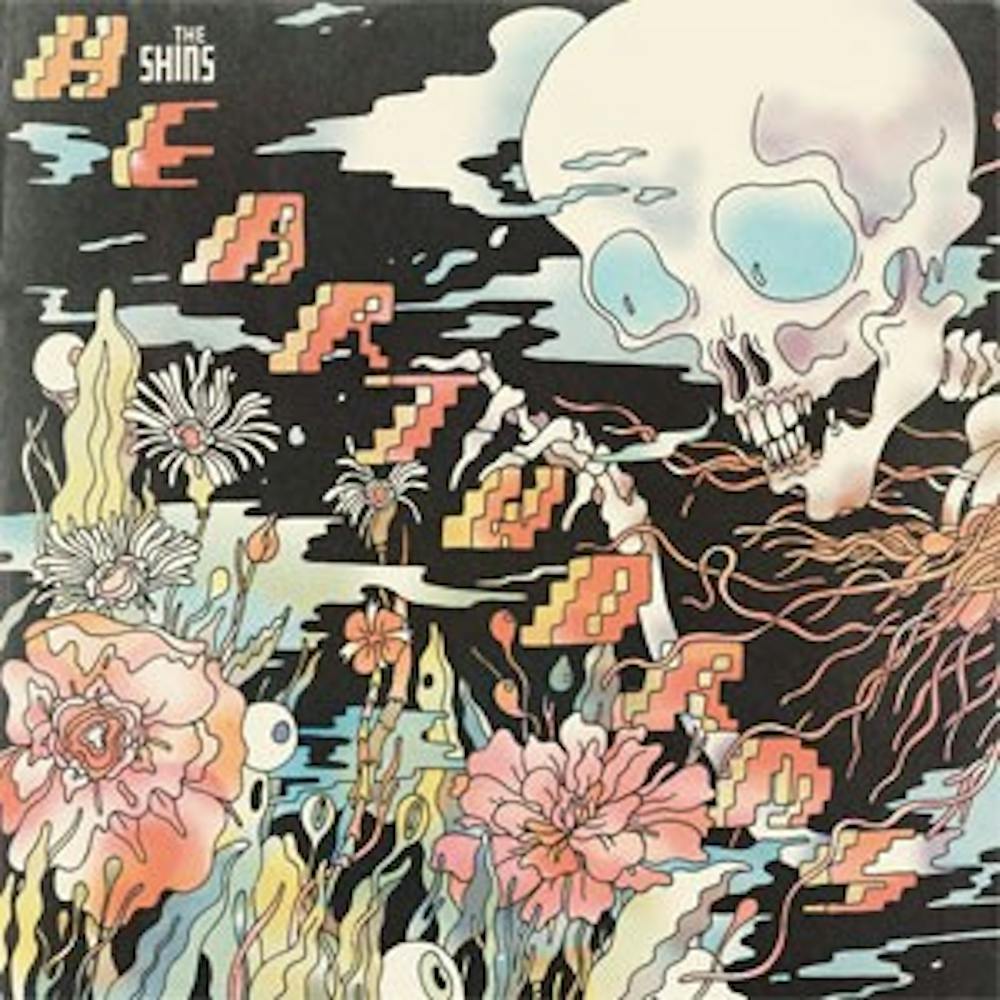The Shins’ big break came in 2004 when its song “New Slang” played in Natalie Portman’s clunky headphones near the beginning of the film “Garden State.” The song and the movie gave new life to what would become an indie rock cliche suburban ennui, emotional disconnect and generational malaise packaged into a bittersweet chorus. Though the brand was potent, The Shins never settled too comfortably into this box.
On the surface, much has changed since then — with the exception of frontman James Mercer, the band has an entirely new lineup. Mercer’s unique nasal vibrato and songwriting sensibility, however, are surprisingly strong ties between the group’s five albums made over the course of 16 years.
The band’s primary evolution has roots in Mercer himself. Now a 47-year-old married father of three, Mercer wrote the group’s newest album “Heartworms” largely in the past tense, exploring the anxieties that were “wriggling in … [his] blood.” Mercer does not make nostalgia saccharine — rather, he traces it through pain, heartbreak and general weirdness.
On “Fantasy Island,” Mercer reflects on his anxieties about integrity and self-expression. In the song, he compares himself to “an aging pilot” forced to “come back down” from a distant island. As a boy, Mercer aspired to visit the “fantasy island,” but now, the fantasy is a reality stripped of “money and the crowds.” He now finds himself emotionally detached and prone to “crash through the ceiling.”
The album’s sweetest tune, “Mildenhall,” is well-placed — coming directly after “Fantasy Island.” The lilting, nearly-acoustic ode to Mercer’s teenage years gives way to a rainy nostalgia. Mercer reflects on his move to Mildenhall, England at age 15, giving a classmate’s Jesus and Mary Chain tape much of the credit for “where we are now.”
Three bitter reflections on Mercer’s former affairs of the heart are the album’s standout tracks — “Cherry Hearts,” “Rubber Ballz” and “Heartworms.” Of these songs — which are packed packed with more dry humor than pathos and invite comparison to the Kinks — “Rubber Ballz” is perhaps the most self-deprecatory. Accompanied by a Smiths-esque backbeat, Mercer describes how, when he was in his “larval state,” his “vices voted” for him to fall in love with a “vastly superior” girl who he couldn’t “get … out of … [his] bed.” He admits he should have “mainlined saltpeter instead.” Mercer’s regrets about the loveless hookups of yesteryear would seem trite if written by a less-skilled lyricist. However, Mercer nurses his wounds with self-awareness and wit.
“Heartworms” retains all the necessary elements for a good Shins album — wordy lyrics, emotional disenfranchisement, creative uses of backup vocals and a colorful mixture of synthetic and acoustic textures. The album is pleasantly weird and unclassifiable, in typical Shins fashion. In “Half A Million,” the album’s seventh track, Mercer reflects on the half a million persons who he is expected to be — “a shelter in the nighttime, a punk running free … a virgin in the moonlight, a freak on the scene.”
But on the whole, “Heartworms” represents a rejection of these easy categories. As he has done throughout his career, Mercer refuses to put himself into a box, opting instead to reach for a guitar and drop into whatever sphere he chooses.







